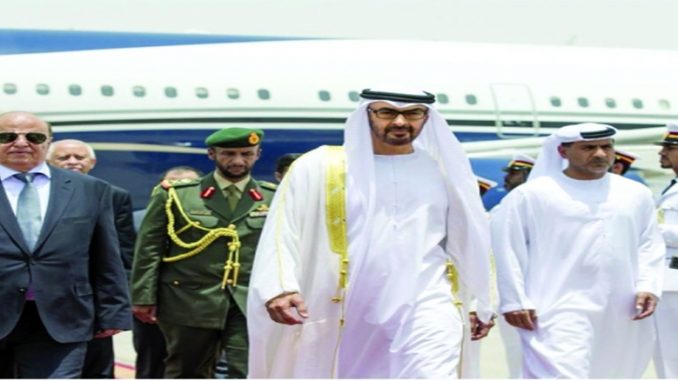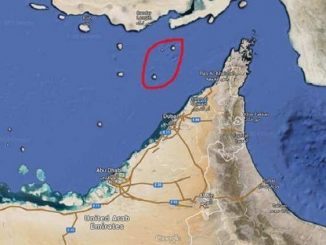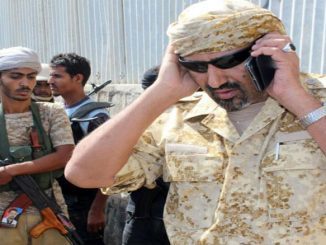
Since the UAE soldiers stepped onto the land of Yemen, the Arab Gulf country did not stop all the time trying to establish its influence in a country which has been suffering from a fierce war for nearly two years.
The United Arab Emirates has used numerous ways to establish its influence in Yemen:
First, this was through supporting specific groups such as the’ Southern Movement’ in southern provinces, which seek to restore the memory of the past (Separatists who have always sought the secession of ‘South Yemen’).
Second, the UAE intensified its military presence in Yemen, either through soldiers or through munition and weapons it used to supply to the fighters on the ground.
Humanitarian aid was the third way the UAE used to extend its influence in Yemen, especially in the southern regions that have been liberated from the control of the Houthi militias and the forces of former President Ali Abdullah Saleh.
Perhaps the latest way to extend its influence in Yemen, the UAE sought to control some Yemeni islands, which was rejected by the Yemeni president.
An informed Yemeni source that the Crown Prince of Abu Dhabi and Deputy President of the United Arab Emirates, Sheikh Mohammed bin Zayed Al Nahyan, behaved with the Yemeni president Abdul Rabbo Mansour Hadi in an improper manner a degree of arrogance in violation of the protocol during a windy meeting with security and intelligence leaders from the UAE and Saudi Arabia in the UAE capital, Abu Dhabi, on Monday.
The source stressed that the crisis between Hadi and the UAE deepened when the latter demandedhave an influence on some Yemeni islands which Hadi refused considering it a violation of Yemen’s sovereignty.
The Yemeni President then returned to the Saudi capital Riyadh to discuss the recent developments of the security situation in Aden, in light of his attempt to impose the state authority over the city considering it temporarily as the capital of the country, which is opposed by some security leaders that are funded by the UAE.
Intensified Differences between Saudi Arabia and UAE in Southern Yemen
Yemeni politicians say the UAE’s low and inappropriate formalities extended to Yemen’s fugitive president Mansour Hadi during his welcoming ceremony at the airport and the Emirati officials’ repeated excuses for turning down meetings with him show increasing tensions and rifts among members of the Saudi-led coalition against Yemen, specially Abu Dhabi and Riyadh.
“The UAE has launched a scrutiny into the situation in Yemen and it avoids frantic actions that are done by Saudi Arabia,” Hosham Abdolmalek, a leader of Yemen’s popular committees, told FNA on Wednesday.
“Therefore, the situation in Southern Yemen is not assessed as positive for the UAE, specially after Mansour Hadi’s return to the Saud dynasty and implementation of their plots following increased political differences and tensions among the Arab (Saudi-led) coalition members,” he added.
Also, Mohammad al-Sa’ad, a member of Lahij provincial council, told FNA that Kuwait had adopted policies similar to those of Oman since the start of the military aggression against Yemen and it doesn’t want war, aggression and terrorism in the region.
“Today, we see that Kuwait has taken an action that is good and to the benefit of its army, and has withdrawn its forces from Southern Yemen because it is informed of the hi-tech military technology and equipment achieved by the Yemeni army,” he said.
The rifts among the Saudi-led coalition members are widening so fast and so deep that frequent reports are surfacing the media in this regard.



